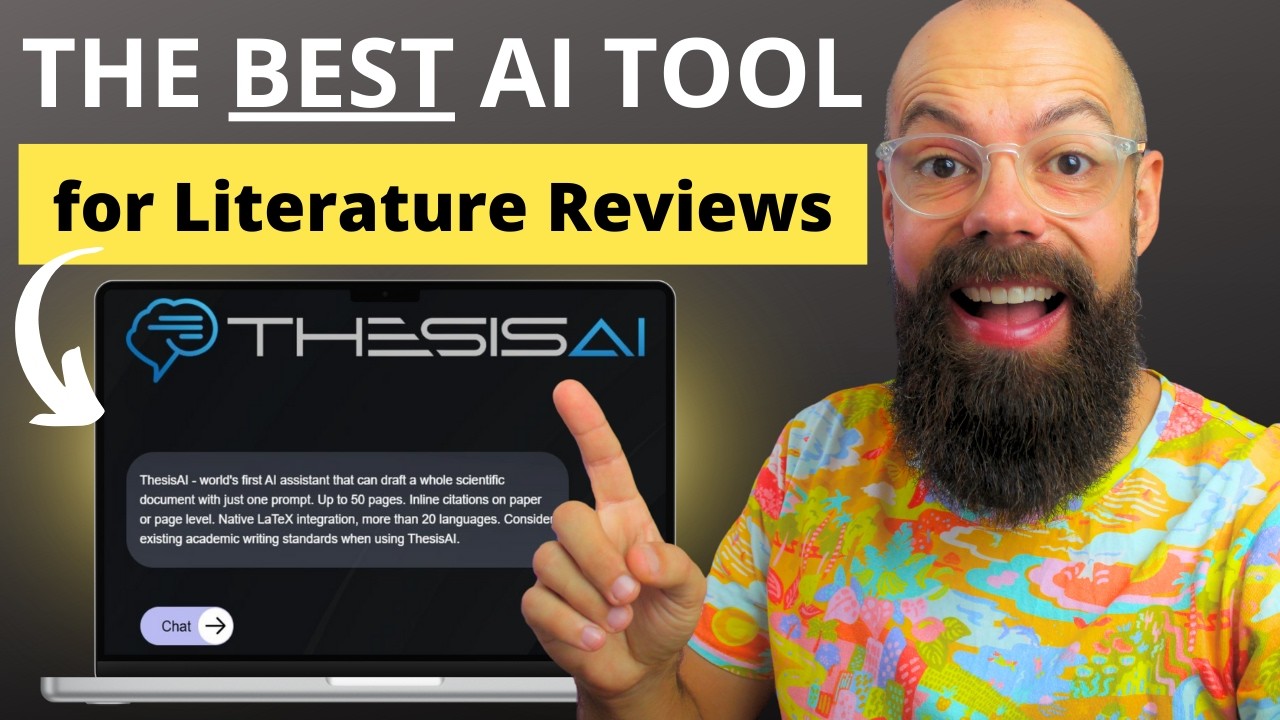The video introduces ThesisAI, an AI writing tool designed for academics to easily generate literature reviews and introductions for scientific papers, supporting over 20 languages and integrating with academic writing standards. It highlights the tool’s user-friendly features, including the ability to upload references, generate structured documents, and edit in Overleaf, while also addressing concerns about AI-generated text detection.
The video introduces ThesisAI, an innovative writing tool designed specifically for academics to effortlessly draft literature reviews and introductions for scientific papers. The presenter highlights that ThesisAI is the world’s first AI assistant capable of generating entire scientific documents, with support for over 20 languages and integration with existing academic writing standards. The tool offers a free version with limited capabilities, while the paid version allows for more extensive document creation, including the ability to generate up to 50 pages of content.
The process of using ThesisAI begins with setting up filters for citation style, document language, and creativity level. The presenter opts for a strict approach to ensure the output remains focused and relevant. Users can upload up to 100 PDF references, which the AI will analyze to create a comprehensive literature review. The presenter demonstrates how easy it is to gather relevant papers and upload them to the platform, emphasizing that this tool significantly simplifies the literature review writing process.
After uploading the references, users provide a brief prompt outlining the desired content. The AI takes up to 30 minutes to generate the output, which the presenter finds to be impressive. The resulting document includes a well-structured layout with headings, subheadings, and a coherent flow of information. The presenter notes that the AI-generated content serves as an excellent first draft, although some sections may feel slightly formulaic. Overall, the output is deemed to be of high quality and relevant to the topic at hand.
One of the standout features of ThesisAI is its compatibility with Overleaf, a popular LaTeX editor. This allows users to edit the generated document freely, making it easy to customize the text and format according to their preferences. The integration with Overleaf also enables users to utilize additional tools, such as grammar and style checkers, to enhance the academic quality of their writing. The presenter appreciates this flexibility, as it allows for a more personalized touch to the AI-generated content.
Finally, the video addresses concerns about AI-generated text being detected by plagiarism and AI detection tools. The presenter tests the output against various detection tools, finding mixed results. While one tool flagged the text as likely AI-generated, another indicated a low probability of AI authorship. The presenter concludes that while ThesisAI is a powerful tool for generating literature reviews, users should still review and edit the content to ensure it meets their standards and passes detection tests. Overall, the video promotes ThesisAI as a valuable resource for academics looking to streamline their writing process.
